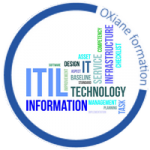Prochaines sessions
Programme
The course is divided into various modules to explain the key concepts in a structured manner
Module 1 – The customer journey – Introduction
- Mapping, designing, measuring and improving the Customer Journey
Module 2 – The customer journey – Step 1: Explore
- Understanding service consumers, service providers and targeting markets
Module 3 – The customer journey – Step 2: Engage
- Service relationship types
- Building service relationships
- Analyzing customer needs
- Managing suppliers and partners
Module 4 – The customer journey – Step 3: Offer
- Managing demand and opportunities
- Designing service offerings and user experience
- Selling and obtaining service offerings
Module 5 – The customer journey – Step 4: Agree
- Aligning expectations and agreeing services
- Agreeing and planning value co-creation
- Negotiating and agreeing a service
Module 6 – The customer journey – Step 5: Onboard
- ITIL management practices
- Planning onboarding
- Providing user engagement and delivery channels
- Enabling users for service
- Offboarding
Module 7 – The customer journey – Step 6: Co-Create
- Service mindset
- Ongoing service interactions
- Nurturing user communities
Module 8 – The customer journey – Step 7: Realize
- Measuring and tracking service value
- Value capturing and customer journey improvement
- Assessing and reporting value realization
- Evaluating value realization and improving customer journeys
Caution
- With the help of ITIL® 4 concepts and terminology, activities, exercises, examples and the case study included in the course, you will acquire relevant knowledge to pass the ITIL® 4 Specialist: Drive Stakeholder Value certification exam
- Please note that participants need to foresee at least 1.5 hours study time every evening
- About the certification
- Multiple-choice format (1 mark per question)
- Pass grade: 70%
- 40 questions
- Closed book
- Duration: 90 minutes + 25% extra time for non-native English speakers
- The exam is scheduled at the end of the 3rd training day in the classroom, or the participants can take the online exam later online and proctor-based
- Candidates need to foresee ± 1.5 hour study time every evening to prepare the questions

